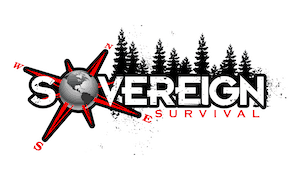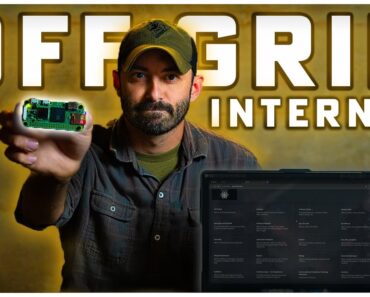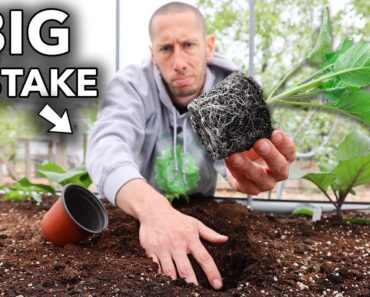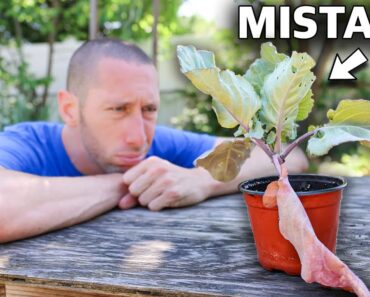Living off the grid sparks legislative action from several states
Living off the grid has its benefits but it also has its drawbacks.
Many individuals who are seeking to go completely off the grid are being met with extreme opposition by the government.
I find this interesting as the government has signed legislation concerning the “green” practices of industry.
It appears that yet again, the government wants to regulate how we can and to what extent we can exercise our freedoms.
Here are a few states which have laws concerning living off the grid.
Florida Off Grid Living Laws
Update: We wrote a full guide here: Is It Legal to Live Off Grid in Florida?
If you are planning on going on the grid in Florida, you may want to reconsider.
The courts have ruled that living off the grid is a violation of the International Property Maintenance Code.
Although all the stipulations in the code do not specifically address off the grid living, this has not stopped the courts from fining residences or from jailing certain individuals (such as Speronis) who have gone off the grid.
The governing factor in their “legitimacy” of the legislation is that the residences have to have sustainable water and electricity.
Where the residences have solar power and collect rainwater, the government has not deemed this as an adequate form of either.
It is not illegal to have your home 100% on solar in the state of Florida. You can have grid-tied, grid-tied with battery backup, and off-grid or standalone.
163.04 Energy devices based on renewable resources.—
(1) Notwithstanding any provision of this chapter or other provision of general or special law, the adoption of an ordinance by a governing body, as those terms are defined in this chapter, which prohibits or has the effect of prohibiting the installation of solar collectors, clotheslines, or other energy devices based on renewable resources is expressly prohibited.
(2) A deed restriction, covenant, declaration, or similar binding agreement may not prohibit or have the effect of prohibiting solar collectors, clotheslines, or other energy devices based on renewable resources from being installed on buildings erected on the lots or parcels covered by the deed restriction, covenant, declaration, or binding agreement. A property owner may not be denied permission to install solar collectors or other energy devices by any entity granted the power or right in any deed restriction, covenant, declaration, or similar binding agreement to approve, forbid, control, or direct alteration of property with respect to residential dwellings and within the boundaries of a condominium unit. Such entity may determine the specific location where solar collectors may be installed on the roof within an orientation to the south or within 45° east or west of due south if such determination does not impair the effective operation of the solar collectors.
(3) In any litigation arising under the provisions of this section, the prevailing party shall be entitled to costs and reasonable attorney’s fees.
(4) The legislative intent in enacting these provisions is to protect the public health, safety, and welfare by encouraging the development and use of renewable resources in order to conserve and protect the value of land, buildings, and resources by preventing the adoption of measures which will have the ultimate effect, however unintended, of driving the costs of owning and operating commercial or residential property beyond the capacity of private owners to maintain. This section shall not apply to patio railings in condominiums, cooperatives, or apartments.
History.—s. 8, ch. 80-163; s. 1, ch. 92-89; s. 14, ch. 93-249; s. 1, ch. 2008-191; s. 3, ch. 2008-227.
Energy devices based on renewable resources.— Florida protects the right to have solar collectors. Cape Coral case was because the homeowner lived in the city and was not using her city sewer and water. If you live in a rural county all homes are on septic and well. Many cities still have homes on well water. There are MANY people living in counties in Florida off-grid with solar, well and septic.
North Carolina (and almost every other state)
Those who are trying to create off-grid homes from materials which are not commercially based may find that the local authorities will not be too happy about it.
In fact, you are very likely to get a citation and criminal charges for building a structure that “endangers the lives of others”, “building a structure without a license”, or “constructing a building without obtaining the proper permits and meeting the regulated codes”.
Recommended: North Carolina’s Off Grid Laws: Everything You Need to Know
In one such instance, a man who dedicated his life to showing and preserving the way of native Americans was faced with criminal charges because (after having the buildings inspected and shown to be “above code”) he did not follow the modern building codes.
Pennsylvania
Those which are living off the grid in PA will have to abide by governing fees and licensing when installing alternative energy.
Those living off the grid must:
- Contact local government agencies to verify the ordinances of the area
- Have a feasibility and engineering cost analysis
- Have the renewable provider (be it wind power or solar panel) approved by the local government
Such fees have specifically been driven to regulate the wind turbines which have become popular in that area.
By making the local government the authority on which residences can use such alternative sources to energy, the greater public will be denied the licensing for such turbines, or in the best-case scenario, the utility company will be given exclusive rights to provide the turbines to the public for an annual fee.
Arizona
Arizona is trying to impose a tax which will allow an additional $152 per year residential tax on any resident who has solar power.
Read the full article we wrote about this, Arizona Off-Grid Laws – Is Living Off-Grid in Arizona Legal?
The state has over 20,000 residences with solar power and more individuals are expected to go off the grid. The state is greatly reducing the number of middle class citizens who will be able to purchase the solar arrays by imposing the tax.
ACC (Arizona Corporation Commission) has been the leader in the fight to keep the residences from having solar power.
They have worked closely with the ALEC to dismantle any green energy.
Thankfully, most of their efforts have not shown much success.
Related: Is It Legal To Live Off Grid In Utah?
Other Blanketed Law violations
These are just a few of the states which have implemented direct strategies against those which are living off the grid.
As more and more states will see a decline in the industrial sectors (because they cannot comply with the new “green” legislation) those which are living off the grid will be held responsible and taxed.
Fines, legislation, and hostilities to those living off the grid are apt to include:
- Child Endangerment
- Condemning of the property as being unsafe
- Fines for having untreated waste on the property
- Building and Zoning fines
- Building without a permit
- Stealing water
- Stealing electricity and other resources
- Cruelty to animals
- Operating a business without a license (if you sell any of your goods).
- Unlawful disposal of hazardous materials
- If you use fertilizer then you may have the FEDs say you are a threat to Homeland Security
If you store seed and grain then the FDA may try to seize any excess seed that you may have by stating that you are operating as a farm and therefore under the same regulations that the FDA imposes upon commercial farming properties.
Recommended read: Top 10 Forums For Survivalists
As you can see, the government does not want you to live off of the grid.
They want to provide you with an option to purchase a semi-off the grid plan which they can tax and regulate.
Those which go completely off the grid are met with a high level of opposition from the government, resulting in finds and imprisonment.
If the government cannot target you directly for your off grid living, then the next step is that they will try to find a loophole in your family life or in your finances.
Any tax which was not paid will be seen as evasion, any illness of your children may be seen as neglect.
It is imperative that if you want to live off the grid that you take legal precautions in order to safeguard yourself from government involvement.
If the local government has zoning regulations and legislation which hinders your off grid home, then there may be federal laws which can help to bypass such laws.
You are encouraged to seek out the best options for you and your family.
Living off the grid does have its benefits and I would encourage anyone who can do so to go off the grid, but those which chose to live as such must be aware that they are doing so under the scrupulous eye of the local and sometimes federal government.
Read more about states with laws about living off-grid with these resources:
- Off Grid Living in Texas: The Legality of it All
- Is It Legal To Live Off-Grid In Wyoming?
- North Carolina’s Off Grid Laws: Everything You Need to Know
- Is It Legal To Live Off Grid In Idaho?
- Is It Legal to Live Off Grid in Florida?
- Is It Legal To Live Off Grid In Utah?
- Arizona Off-Grid Laws – Is Living Off-Grid in Arizona Legal?
- Living Off-Grid in Arkansas: The Ultimate Guide
- Living Off the Grid in Tennessee – What You Should Know






